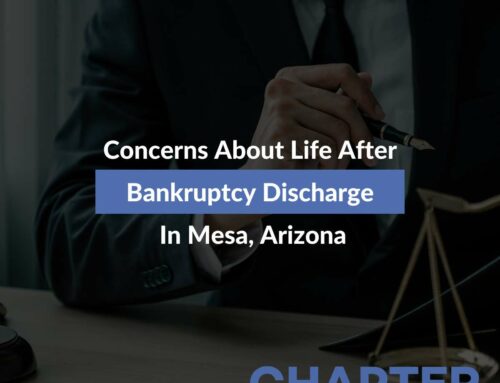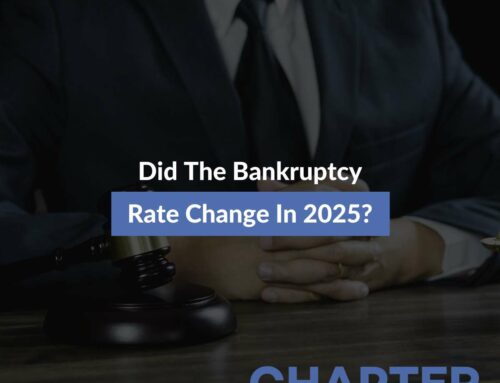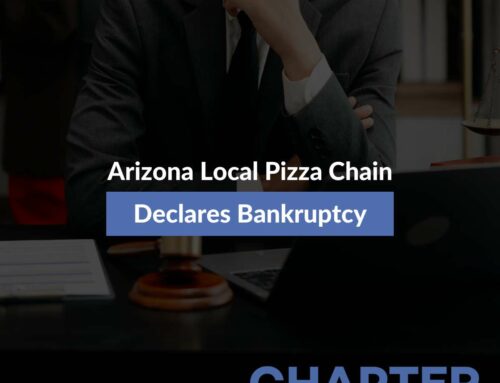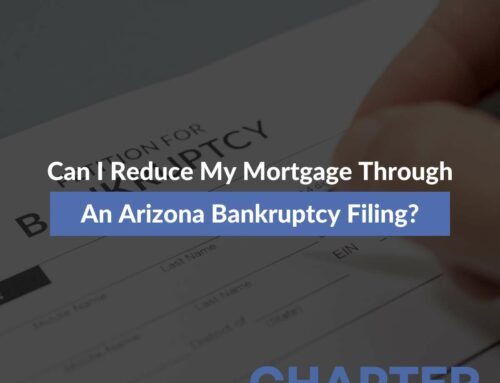Many of us spend most of our lives surrendering at least part of our paychecks towards Social Security. The idea is that when someone reaches retirement age, they can receive some funds from the Social Security Administration to help support them after they stop working. But Social Security Income, or SSI, usually only provides a modest lifestyle and might not be enough to support someone who has built up debt throughout the years. Bankruptcy can clear up a variety of debts, but the prospect of filing may bring concerns for those who live off of SSI. Can filing bankruptcy destroy your chance of collecting SSI or stop the payments you already receive? Are there special bankruptcy restrictions for SSI recipients struggling with debt? Read on to learn more about SSI’s impact on bankruptcy, especially on cases filed in Arizona. If you’d like to schedule your free consultation with one of our experienced Mesa chapter bankruptcy lawyers, call 480-405-1010.
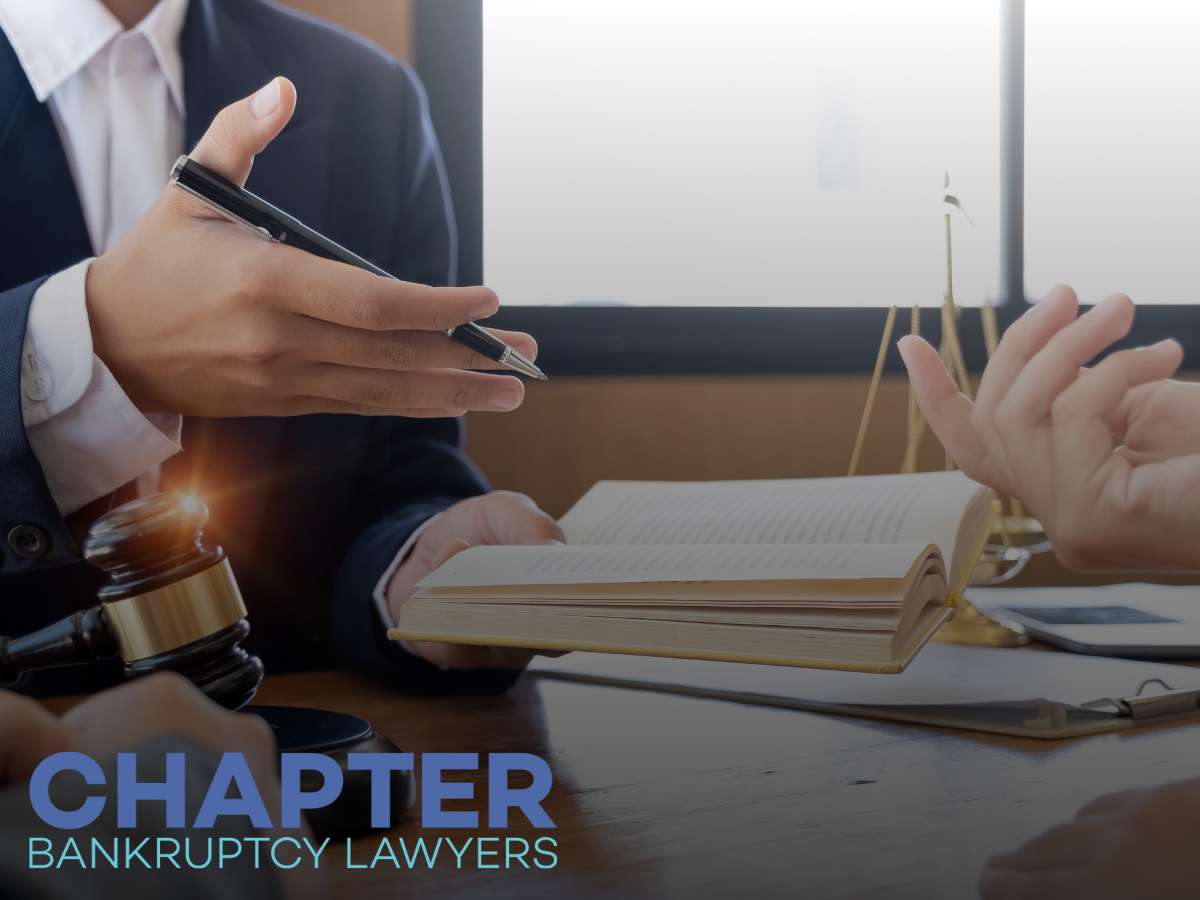
Debt Collection & SSI
Because SSI is meant to support a modest lifestyle for someone who is of an advanced age and can’t reasonably go out and find higher-paying work, this type of income is largely protected from creditors. One of the most common ways that creditors go after debtors is through wage garnishments. Here, the creditor will file a lawsuit against the debtor to obtain a judgment against them. If the creditor wins the lawsuit, they can use the judgment to take a variety of actions against the debtor, including wage garnishment. Usually, the creditor would then receive 15-25% of the debtor’s paycheck until the balance (plus legal fees and interest) is repaid. But SSI can’t be garnished like a normal paycheck.
A similar tactic to wage garnishment is a bank account levy. Instead of using the judgment to procure a writ of garnishment, the creditor will instead use the judgment to convince the court to allow them to withdraw the debt owed from the debtor’s bank account directly. One of the most common ways this happens is through an IRS judgment for unpaid back taxes. Debts owed to banks (think late fees, credit card fees, etc.) can often be levied from a bank account without a court order. However, if the debtor’s bank account is entirely comprised of Social Security funds, it can’t be drained to satisfy a creditor. These funds are exempt from creditors just like they would be if the creditor was attempting a wage garnishment instead. If there are funds from mixed sources in the account, it may not be fully protected.
Do I Lose My SSI If I Declare Bankruptcy?
It is a valid concern that you may surrender your rights to collect SSI if you file for bankruptcy. However, the courts realize that taking away someone’s SSI (which they paid taxes for their entire life) will only put them in a worse spot financially after the bankruptcy. Similarly, most pensions and retirement savings are exempt from the trustee in chapter 7 and chapter 13 bankruptcy. Filing bankruptcy won’t stop an SSI recipient from qualifying for benefits. It also doesn’t affect someone’s ability to qualify for Medicare and Medicaid.
What Else Is Protected In An Arizona Bankruptcy?
Just because your SSI is protected in bankruptcy doesn’t necessarily mean all of your assets will be too. Everything else that you own or hold an interest in must be protected by a bankruptcy exemption, or the trustee might exercise the option to take the asset to sell and pay off creditors. Each state has its own bankruptcy exemptions, and some states allow bankruptcy debtors to choose to use federal exemptions instead of state exemptions. Arizona does not give bankruptcy debtors the choice to use federal exemptions. Any assets left unprotected by Arizona’s bankruptcy exemptions will need to be protected using a method besides federal exemptions.
The most plausible way for someone to maintain a reasonable lifestyle on SSI is if they own their home outright. Many of our clients who receive SSI do, or have at least a good portion of their mortgages paid off. Here, the homestead exemption must be applied to ensure that the trustee isn’t inclined to seize and sell the home. The homestead exemption has changed rapidly over the past few years due to Arizona’s hot housing market. Just a few years ago, the homestead exemption was $150,000. During the pandemic, this was increased by $100,000 to $250,000.
Another important asset to many people is their cars. Although the value of some used vehicles has also risen over the past few years, the motor vehicle exemption for bankruptcy in Arizona has remained the same. As of 2023, the motor vehicle exemption in Arizona is $6,000. A married couple declaring bankruptcy together can use the motor vehicle exemption in one of two ways. First, each spouse can apply a $6,000 exemption to their own vehicle. The second option is to combine the exemptions for one vehicle or apply a $12,000 exemption to one vehicle only. There are exceptions for debtors who have disabilities and need specialized equipment in their vehicles.
Many assets are protected with almost limitless value in bankruptcy, both in Arizona and nationwide. As previously mentioned, pensions and 401(k) accounts are mostly exempt from the bankruptcy trustee. Spousal maintenance and child support are also exempt. Unemployment compensation and welfare benefits are entirely exempt as well. Disability benefits and wrongful death awards are completely protected by Arizona’s bankruptcy exemptions. Group life insurance has no coverage limit, but life insurance for a spouse or child is only protected up to $20,000 in an Arizona bankruptcy case.
It’s highly unlikely that the bankruptcy trustee will come to a debtor’s house to observe all of their possessions, but they do technically have that right. The Arizona bankruptcy exemption for household goods, furnishings, and appliances is $6,000. An exemption of up to $2,000 can be used to protect one bicycle, burial plot, or computer. An exemption of $2,000 can also be applied to a firearm in Arizona. Wearing apparel, the bankruptcy court’s formal term for clothing is protected up to $500 for an individual filer. The Arizona exemption to protect a watch is $250, and to protect a wedding ring is $2,000. Funeral deposits are covered up to $5,000 in an Arizona bankruptcy. To review your assets to make sure they are protected by Arizona’s bankruptcy exemptions, call to schedule your free consultation at 480-405-1010.
Honest Bankruptcy Lawyers With The Information You Can Trust
If you are living entirely off of SSI and have issues with debt, bankruptcy may or may not be the most effective solution for your problems. You can trust Chapter Bankruptcy Lawyers to give you an honest opinion on whether bankruptcy could be helpful for you rather than tell you bankruptcy will help to obtain more clients and fees. But depending on your unique circumstances, you may have other options available. To learn more about what these may be, and for more information about declaring bankruptcy with our firm, it all starts with a free consultation which can be held by phone. Contact us through our online form or call us at 480-405-1010 to schedule your free consultation with one of our experienced bankruptcy lawyers today.
Chapter Bankruptcy Lawyers
Mesa Office
3707 E Southern Ave
Mesa, AZ 85206
Phone: 480-405-1010
Email: [email protected]
Tempe Office
4500 S Lakeshore Dr #300
Tempe, AZ 85282
Phone: 480-562-6145
Email: [email protected]


